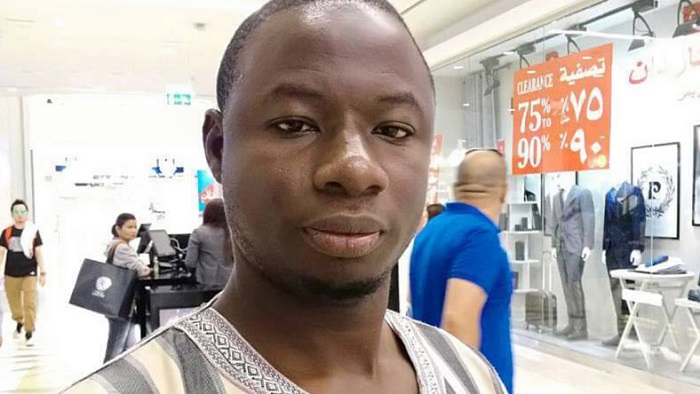Ahmed Hussein-Suale
THE GRUESOME murder of Tiger Eye PI investigative journalist Ahmed Hussein-Suale and police harassment of journalists, have adversely affected Ghana’s ranking on the 2019 World Press Freedom Index.
Hussein-Suale, 31-year-old, was killed earlier this year by two alleged gunmen at Madina, a suburb.
He was involved in the production of the Number 12 investigative peace that exposed deep-seated corruption in the Ghana Football Association (GFA).
The 2019 Index compiled by Reporters Without Borders show Ghana moving four places from 23 to 27 in the 2019 edition.
The report cited the murder of the investigative journalist and police harassment of press men and women for Ghana’s poor ranking.
It said “a group of investigative journalists had to spend part of 2018 in hiding after producing a documentary about Ghanaian soccer corruption.”
According to the report, “a ruling party parliamentarian who had been named in the documentary publicly threatened one of the journalists without ever being sanctioned. The journalist was shot dead in the street a few months later. Journalists are rarely arrested but several were attacked with impunity in 2018, in some cases by police officers.”
Assin Central MP, Kennedy Ohene Agyapong was the one revealed Hussein-Suale’s identity to the public after the documentary was premiered.
The report noted that “although Ghana continues to be seen as one of the most democratic countries in Africa and Chapter 12 of its 1992 constitution guarantees media pluralism and independence, a third of the media are owned by the state or by businessmen linked to the government.”
The report says Namibia has restored its position as Africa’s best in press freedom by moving to the first position on the continent.
Ghana’s worst performance was in 2013 when it ranked 30 and its best was in 2015 ranking 22. Norway topped the world while Turkmenistan came last at 180.
The RSF Index, which evaluates the state of journalism in 180 countries and territories every year, shows that an intense climate of fear has been triggered — one that is prejudicial to a safe reporting environment.
The report says “If the political debate slides surreptitiously or openly towards a civil war-style atmosphere, in which journalists are treated as scapegoats, then democracy is in great danger,” RSF secretary-general Christophe Deloire said. “Halting this cycle of fear and intimidation is a matter of the utmost urgency for all people of good will who value the freedoms acquired in the course of history.”
BY Melvin Tarlue

